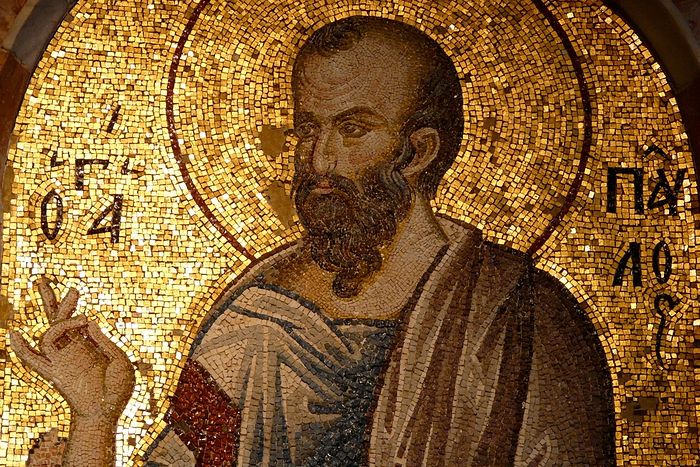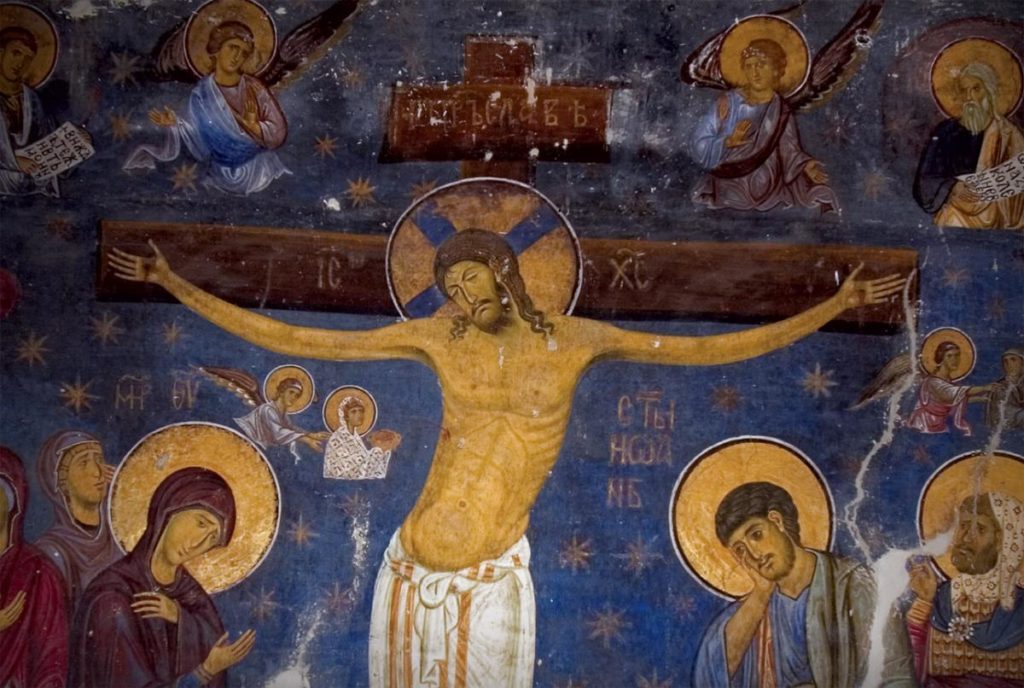
In the Name of the Father and of the Son and of the Holy Spirit, one God. Amen.
Ihave something of a confession to make to you. This week (and I’m not sure exactly why) I felt very discouraged. It may be because I did not get enough sleep or because I ate too much junk food. Or because I heard about another divorce from a wedding I had done years back, and I started counting how many it had been.
Or maybe because I found myself frustrated again at trying to get unmotivated people to do things they’re not motivated to do. Or because I wasn’t as faithful or fervent in my private prayers as I could be. All of these things were true this week.
And so when I looked at the Gospel for today to prepare this sermon, instead of being inspired by an encounter of Jesus Christ with demons and how He has immediate and total control over them, I thought to myself, “Oh, no, not the pigs again.”
I am sure that you have all felt similar discouragements. It is easy to let these things pile up—both our own personal failures and our disappointing circumstances—and to embrace a sense of despair, usually accompanied by anger and slothfulness and apathy.
How you feel, what you do, and what you pay attention to will affect how you perceive things, and such perceptions tend to pile up and lead to worse behavior, and it all spirals downward and gets worse.

When things get to that point, the cure for them is not to scold and say, “Shape up!” I mean, we do need to shape up—in my case, I should sleep more, eat less junk food, be diligent about my prayers and shepherd dark and negative thoughts out of the sheepfold of my mind. But we have to have a reason to do those things. There has to be a goal that motivates such changes of habit and mind.
For the Christian, there really is just one thing, and that one thing is the Gospel of Jesus Christ. It is the good news. It is hearkening to this good news—hearing it and obeying it—that is the means by which we are saved by God. And that desire is what drives us. And if we are not driven, then it is because we have lost that desire. And it is of this desire that St. Paul speaks at the beginning of our epistle reading today.
He says: “My heart’s desire and my supplication to God is for Israel, that they may be saved. For I bear them witness that they have a zeal for God, but not according to knowledge. For being ignorant of God’s righteousness, and seeking to establish their own righteousness, they did not submit to the righteousness of God.”
Paul is speaking here of his own people Israel, but since we are reading this today, let’s imagine him speaking of us, as well. Like all good spiritual fathers, his heart and supplication to God is that people will be saved. But there is a problem: People have a zeal, but it is not a zeal “according to knowledge.”
In Paul’s time, he is speaking of the enthusiasm that his own people have for God according to their distorted view of the Law of Moses. They had an enthusiasm and passion that were not in line with a true knowledge of God as revealed in Jesus Christ. They thought that they would be saved by pursuing those other desires rather than the desire for Jesus, Who is the One Who actually communicates God.

In our time, all of us have zeal for various things that we treat as gods, pursuing them and joining ourselves to them. Why do we do that? We sacrifice for these things, devote ourselves to these things, and pursue these things above everything else because we have a distorted view of what it means to be fully human, fully alive.
A friend of mine commented recently that modern people may not regard their pursuit of beauty, wealth, fame, strength, power, etc., as actually worshiping gods. I mean, who’s worshiping Aphrodite or Zeus or Ares, gods connected to these various ideas. But he argued that these things really are being worshiped. Why? Because we sacrifice to them.
If you want to know what you truly worship, just look at what you sacrifice to. You may not think of yourself as worshiping Ares the god of war, but if you relish victory in all things and domination over others, and you find yourself obsessing over military conquest for our country or hate other nations who seem to threaten us, and you give your time and money and words and other efforts to that, then you are effectively a worshiper of Ares.
And you become like the god you worship. I’ve mentioned Ares here, and we can see how one of his worshipers would become an angry and violent person. But what about a worshiper of Aphrodite, goddess of beauty? Would such a worshiper not become vain and shallow? Or what about one who worships Plutus, who is not only the Greek god of wealth but also (in some stories) the son of Hades, god of the dead? Is it not true that one who obsesses over his possessions finds himself deadened and hellish? So you don’t have to have little statues of these gods or go into temples dedicated to them to be worshipers of them or what they represent. You just have to sacrifice to them. And if you do that, you will become like them.
So how do we break out of this idolatry? We worship Jesus Christ, and we do that foremost by sacrificing to Him. Sacrifice is the essence of worship. If your worship does not require sacrifice, then it’s not really worship.
There are many kinds of sacrifice, of course—we offer up bread and wine so that we may share a meal with our God. And in the Christian faith, the meal is actually God Himself, offered by us to Him as bread and wine and then offered by Him back to us as His own flesh and blood. And so we commune with Him and therefore become like Him.

But we also offer up the sacrifices of praise and of our possessions and of our time and of our words. If what you give to God is not a sacrifice, then you are not really worshiping Him. Consider these four things I mentioned: praise, possessions, time and words.
The sacrifice of praise is primarily our engagement in prayer together in church. To do this the right way, it will have to be a sacrifice. You will have to give something up to do this well, and it will probably be opportunities for work and play that will be sacrificed.
The sacrifice of possessions is both our giving of our money to God in His Church and also our setting aside excess possessions that we do not need. Again, it has to be a true sacrifice. It should feel like a true investment, that you are taking something valuable and giving it to God.
The sacrifice of time is given primarily given in service to the children of God that He puts it front of you—your family, your fellow-worshipers here in this parish and elsewhere in the Church, the needy poor, and anyone else He sends to you. The time that you give is time you could be spending on something else, which is what makes it a sacrifice.
And finally we have to give the sacrifice of our words. As Christians we have a hope within us, the hope of Jesus Christ. We so freely speak words about many other things we love—food, drink, entertainment, books, ideas, etc. But we cannot fall silent about the coming of the King of Kings into this world to conquer death itself and that He will come again to judge the living and the dead. The Gospel of Jesus Christ does not go without saying. We sacrifice our words by speaking of Jesus in our families and to others.
If we want to be like Jesus Christ, then we have to worship Him by sacrificing to Him. Sacrifice always means giving over something valuable that then becomes a means of sharing and communion with God. A Christianity that is convenient, that is without sacrifice, is not the true Christianity that worships Christ.
We are all sacrificing all the time. We give over our praise, our possessions, our time and our words to various pursuits and desires. But so much of the time, we do so with a zeal that is not according to knowledge, the knowledge of the true God. We are sacrificing instead to other gods, and we are becoming like them, not just in the ways that seem attractive but also in the ways that are dark and broken.
But if we will sacrifice instead to the one true God, then we will become like Him instead—loving, immortal, peaceful, generous, creative, beautiful, humble, healing. All these things characterize those who truly sacrifice to the one true God Jesus Christ.
To our Lord Jesus Christ therefore be all glory, honor and worship, with His Father and the Holy Spirit, now and ever, and unto ages of ages. Amen.



